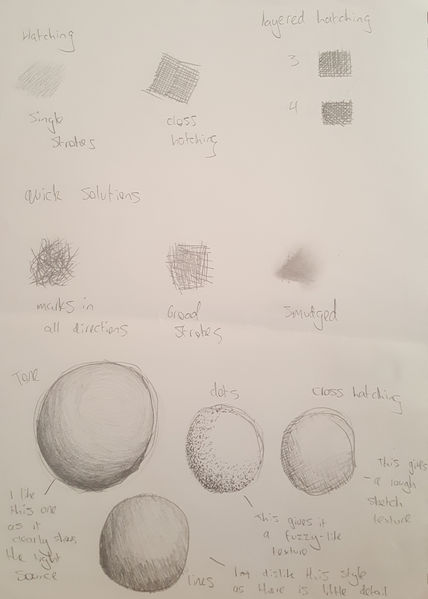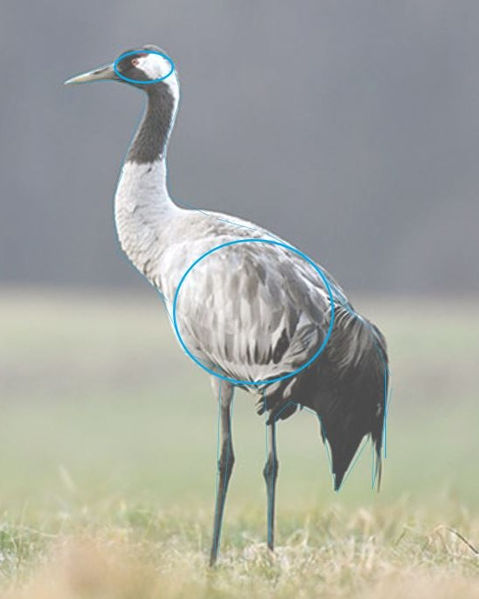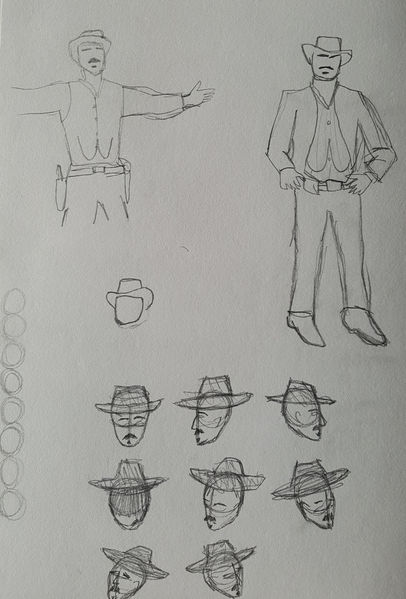Technical Skills
AF 1 - Understand artistic concepts including light, colour, composition, perspective and volume.
AF 2 - Understand how traditional processes have been developed and integrated into digital art software systems and processes for games, animation and VFX.
AF 3 - Be able to demonstrate foundation skills in drawing for different purposes.
Session 1
Drawing Techniques and Digital Bedroom
For my first art lessons I had to draw different sketching and shading techniques, I already knew these techniques but it is always good to practice them. I then shaded various shapes to show tone and how light would react differently with them. I also had to make a mind map and design a bedroom that I would then create in photoshop. I hadn't used photoshop much before so this also served as a starter course for that.
Session 2
Fundamental Shapes in Drawings and Silhouetting
In this session we had some continuous line drawing tasks to do where you look at someone and try to draw them without looking at the paper or releasing the pencil, Its supposed to improve hand eye coordination. Next we learned about using basic shapes to help make the proportions of a person or object. My first task was to use this on a bird in photoshop, highlighting the body parts, and then draw from the shapes. I think this went alright and definitely helped with the size of the head compared to the body. I repeated this process for a man standing, sitting and running and then finally an object of my choice which was a wrench.
Session 3
Photoshop Activities
To start this session we did some activities on photoshop which included using digital tools to colour and add shading. Then I had some line challenges which involved using control handles to curve lines into the position I wanted. I think I improve from the first one and the last one but could definitely use more practice for both activities.
Drawing to Proportion
Next we learned about drawing to proportion where we used 8 circles, roughly the size a head should be, to divide the body into different segments. Knowing that the chest covers 2 segments is important to drawing a realistic looking person or character. I had to draw front and side profiles as well as some different poses to see how the proportions would change. For example, for the pose holding the gun, the arm seems smaller because its facing the viewpoint. I also had to draw heads facing many different ways which will help if I have to draw a person in a very specific pose. Finally I had to draw multiple quick sketches of a character I had chosen in different poses for further practice. They are very rough sketches but could be good practice for drawing a highly detailed one.






















